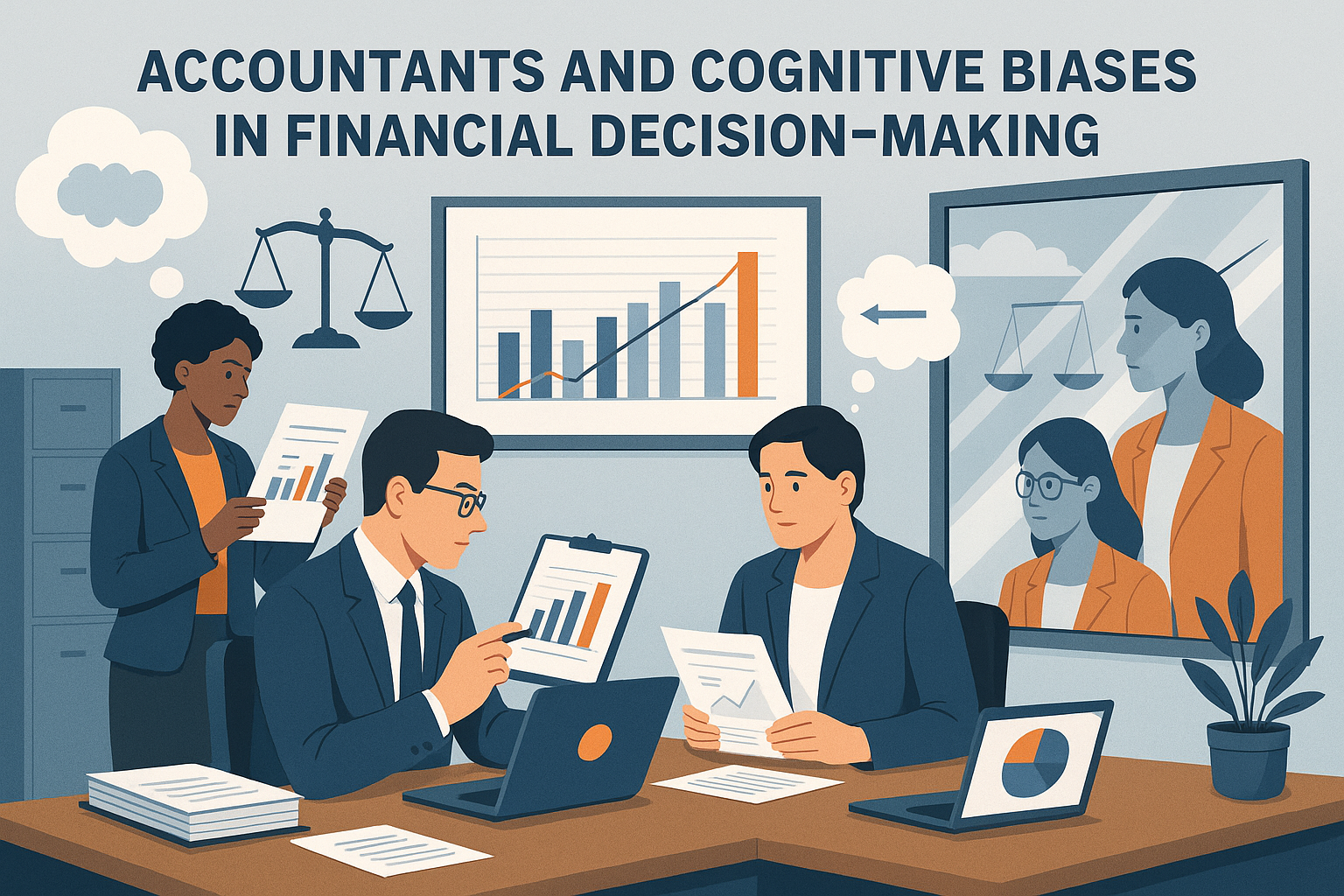سلة التسوق الخاصة بك فارغة
هل لديك حساب بالفعل؟ تسجيل الدخول للتحقق بشكل أسرع.
هل لديك حساب بالفعل؟ تسجيل الدخول للتحقق بشكل أسرع.

When we think of accountants, we often picture precision, neutrality, and objectivity—professionals guided by numbers, not feelings. But the truth is, like all humans, accountants are not immune to bias. And as organizations in Asia and the Arabic regions evolve with technology, talent shifts, and regulatory complexity, it's important to ask: How much of human nature seeps into financial decisions behind the scenes?
At GalleryHR, we believe that acknowledging cognitive bias in accounting is not a weakness—it's a strategic step toward better governance, smarter decision-making, and ethical leadership.
Accounting biases are the subtle, often unconscious mental shortcuts or preferences that influence how financial information is interpreted, presented, or acted upon. These biases can stem from personal experiences, organizational culture, fear of judgment, or even reward structures.
Bias doesn't always mean unethical behavior. In many cases, it's simply human nature asserting itself in systems designed for rationality.
Accountants may unintentionally look for data that supports pre-existing beliefs or expectations, ignoring contradictory evidence.
🧾 Example: Expecting year-end profits to increase, an accountant may gloss over early warning signs in expense trends.
Relying too heavily on the first piece of information encountered, even if it becomes outdated.
🧾 Example: Budget decisions for a new financial year are based on last year's forecasts, despite major economic shifts.
Believing in the accuracy of one's judgment more than the data supports.
🧾 Example: An experienced finance manager may skip rigorous checks, assuming their intuition or "gut feel" is enough.

Preferring established accounting methods or structures, even when better alternatives exist.
🧾 Example: Continuing with outdated Excel models instead of adopting automated accounting software.
Interpreting outcomes in a way that favors oneself or one's team.
🧾 Example: Taking credit for financial gains but attributing losses to external factors or departments.
Accounting sits at the core of decision-making—impacting resource allocation, compliance, investment, and risk management. If biases aren't identified and mitigated, the consequences can include:
In high-growth markets like Asia and the Arabic world, where businesses are scaling rapidly, unnoticed biases can compound, leading to bigger financial blind spots.
It's important to remember: accounting is both science and judgment. While frameworks like IFRS and GAAP aim to standardize reporting, much of financial work still involves interpretation—deciding:
This room for judgment is where bias lives.
| Area | Potential Bias Impact |
|---|---|
| Revenue Recognition | Overestimating revenue to meet targets |
| Cost Allocation | Favoring certain departments or leaders |
| Forecasting | Optimism bias in future projections |
| Auditing | Confirmation bias in risk assessments |
| Hiring in Finance | Preference for "culture fit" over diverse skill sets |

Use templates, automation, and double-check procedures to reduce room for subjective adjustments.
Introduce review loops where multiple team members assess critical judgments and rotate responsibilities to prevent tunnel vision.
Leverage AI and machine learning tools that can identify patterns and anomalies that human bias might miss.
Build a culture where questioning assumptions and admitting uncertainty is encouraged, not penalized.
Regular training on cognitive biases helps accounting professionals recognize and counteract their own tendencies.
Include team members from different backgrounds, experiences, and expertise areas to challenge groupthink.

Recognizing that accountants are human—with all the cognitive quirks that entails—isn't about undermining the profession. It's about making it stronger. By acknowledging bias, implementing systematic safeguards, and fostering a culture of continuous improvement, organizations can harness the analytical power of accounting while minimizing the risks of human error.
In an era where financial transparency and ethical governance are more important than ever, the accounting professionals who embrace their humanity while striving for objectivity will be the ones who drive sustainable business success.
At GalleryHR, we support organizations in building finance teams that combine technical expertise with emotional intelligence and bias awareness—creating a foundation for better decision-making and long-term growth.
0 تعليقات